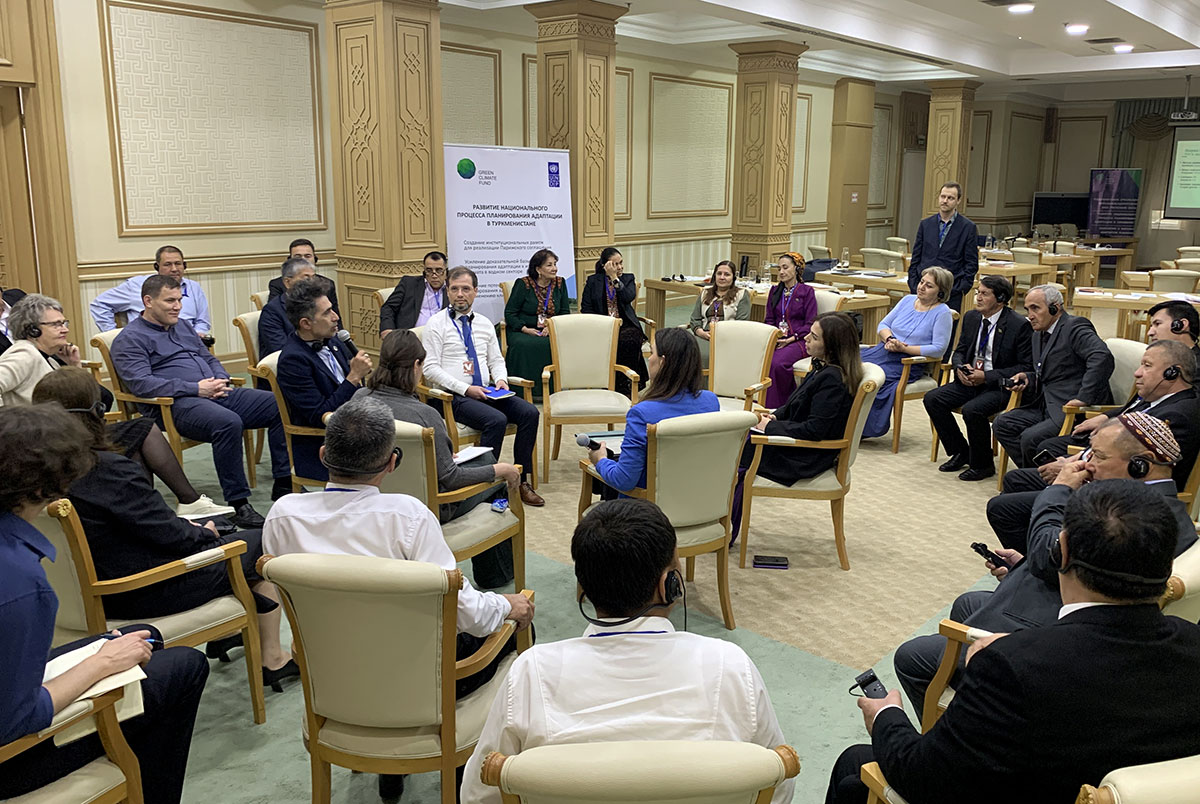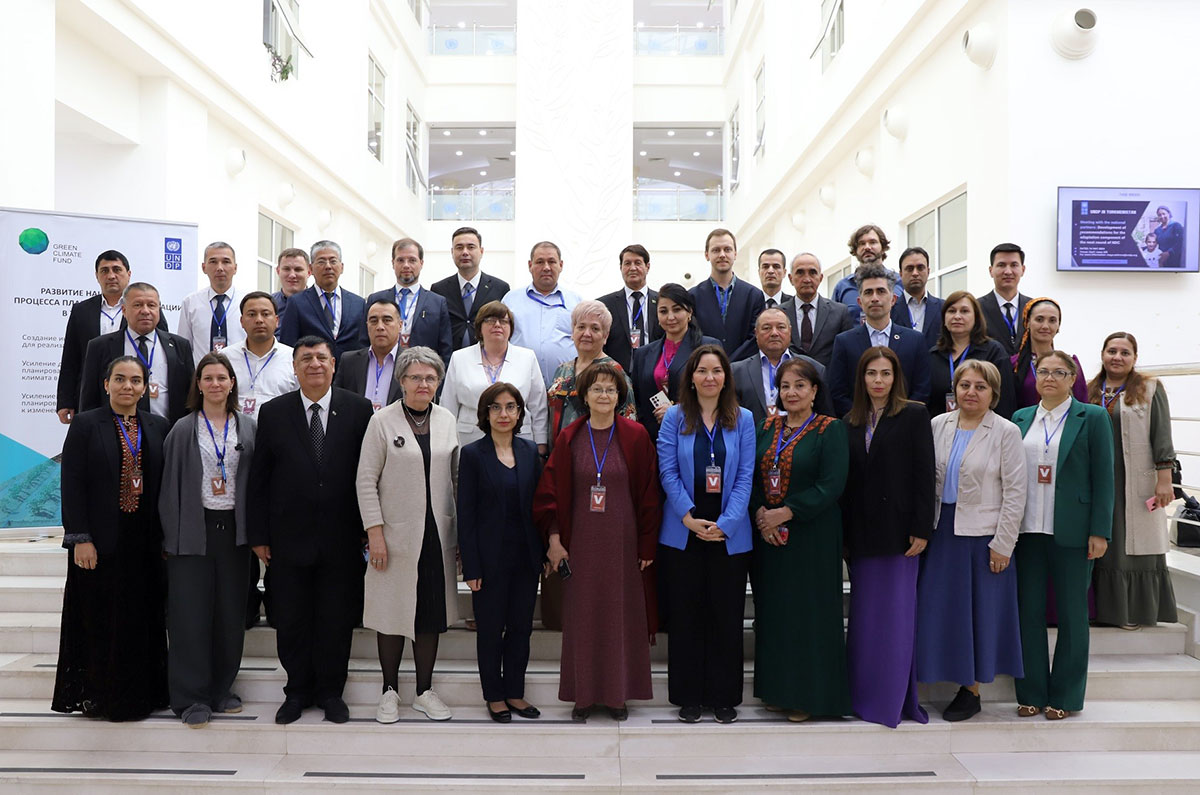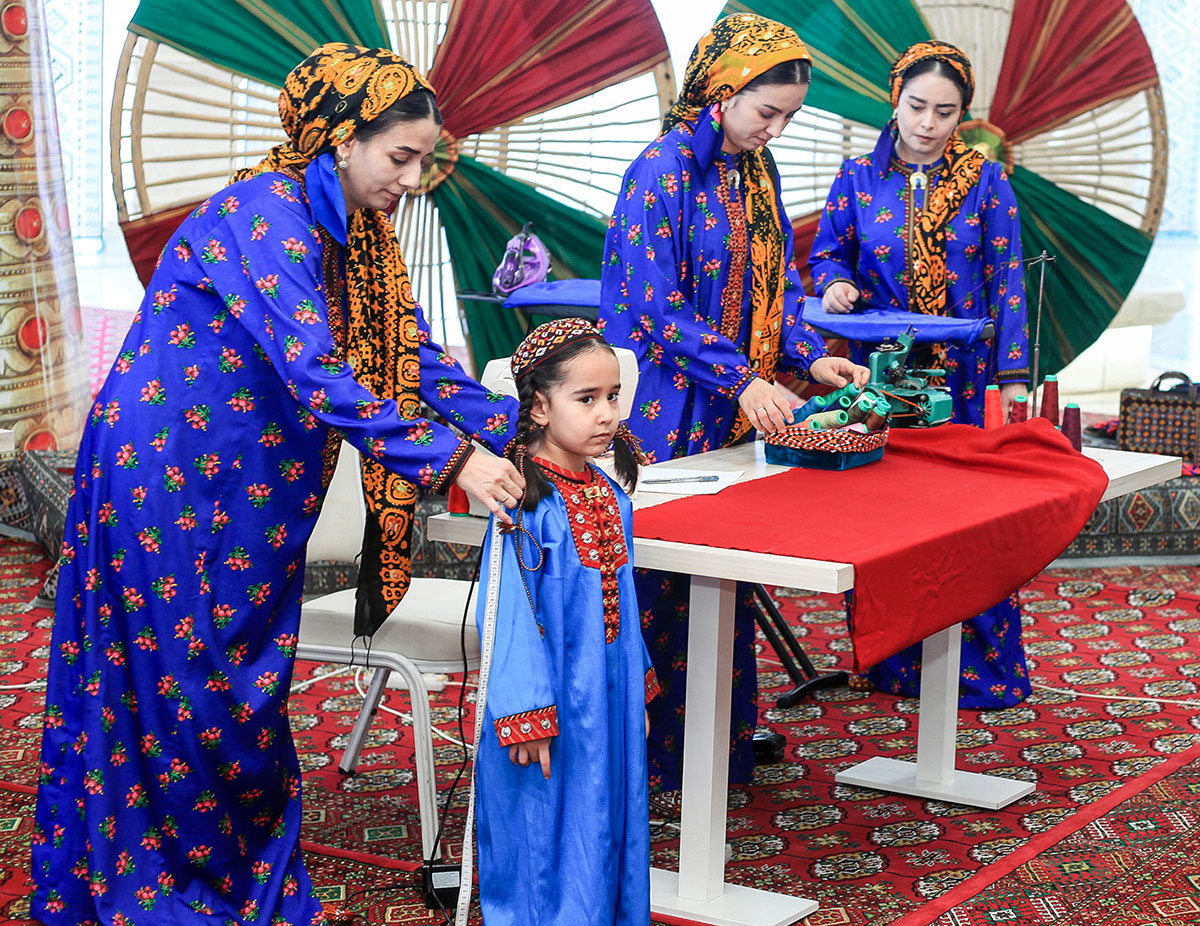The United Nations Development Program (UNDP) and the Potsdam Institute for Climate Change Research (PIK), with the support of the German Society for International Cooperation (GIZ), held a joint workshop in Ashgabat on the topic «Strengthening climate resilience of the water-energy-food-ecosystems nexus in Turkmenistan and Central Asia».
The purpose of the event is to bring together key stakeholders, including authorities, researchers and practitioners, to discuss the interrelated issues of climate change, hydrology and agriculture, as climate change poses a significant threat to hydrological systems and agriculture, with cascading impacts on human security.
The seminar was attended by representatives of ministries and government agencies of Turkmenistan, including the Mejlis, the Ministry of Foreign Affairs, the Ministry of Agriculture, the Ministry of Finance and Economy, the Ministry of Health and Medical Industry, the State Committee for Water Resources, the State Hydrometeorological Service, the State Research Design Institute «Turkmensuwylymtaslama», Ministry of Education, Union of Industrialists and Entrepreneurs, Women's Union. Participants recognized the topic of the seminar as highly relevant for Turkmenistan due to the arid climate, water shortages and the importance of agricultural development.

UNDP international expert, representative of the consulting company Hydrophil GmbH Dr. Robert Birkandt noted: «At the seminar, all participants discussed the risks that climate change poses to the relationship between water resources and agriculture in the regions of Turkmenistan. Based on this discussion, we have produced visual chains of climate impacts using a semi-quantitative approach and climate projections out to 2100. In addition, the exchange of views on promising adaptation options was very fruitful, as the participating experts shared their experiences and valuable knowledge on local conditions. In this way, the workshop as a whole provided very important support to the adaptation planning process».
Dr. Julius Didovets, project manager at PIK, noted that climate change will significantly affect not only current but also future generations. For example, according to a recent study, people born in 2020 will experience extreme events twice as often or more than their parents and grandparents. In this regard, it was emphasized that such workshops provide an important platform for the development of adaptation strategies at the regional and national levels.
The seminar was organized within the framework of the project «Development of the national adaptation planning process in Turkmenistan», implemented by UNDP with financial support from the Green Climate Fund (GCF) in cooperation with the Ministry of Environmental Protection of Turkmenistan, and the «Green Central Asia» initiative launched by the German Ministry of Foreign Affairs in partnership with PIK and the German Research Centre for Geosciences (GFZ).








